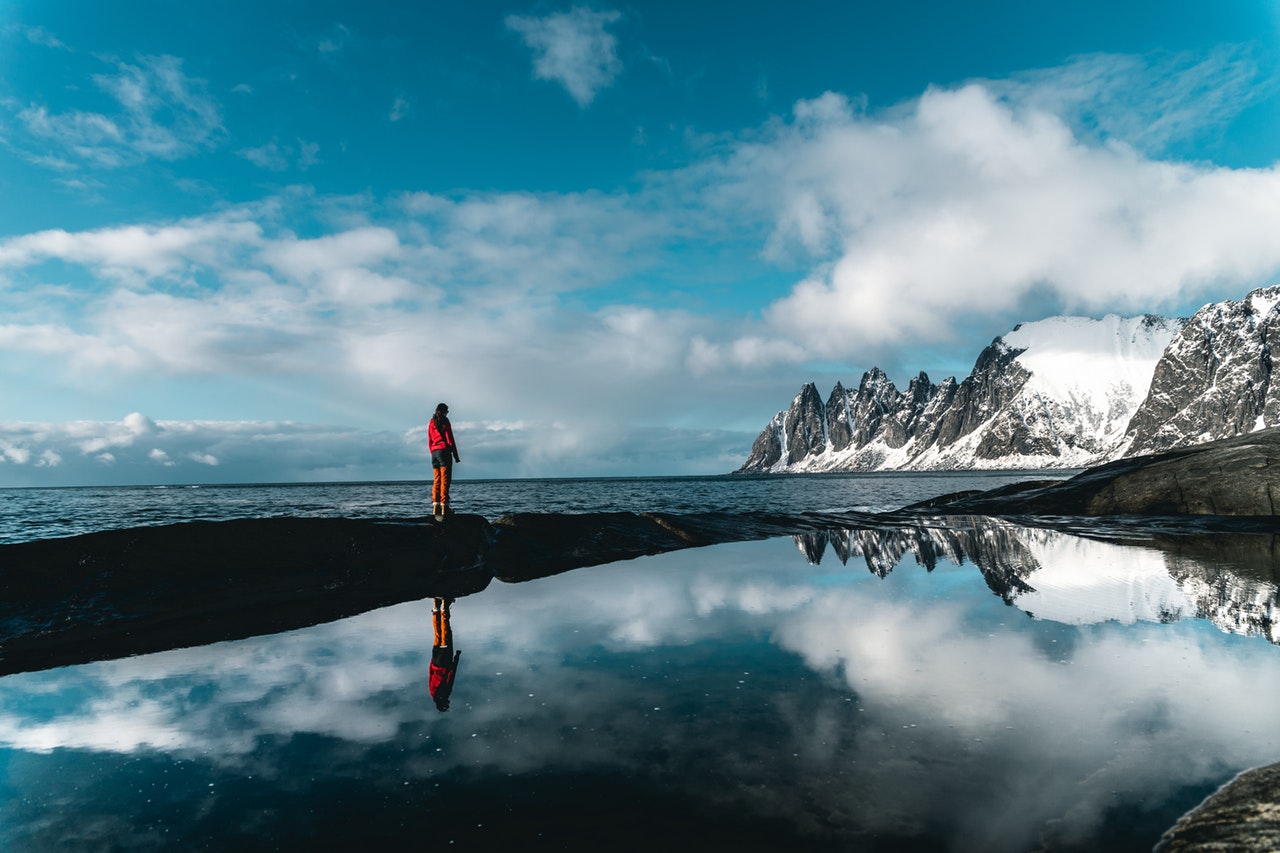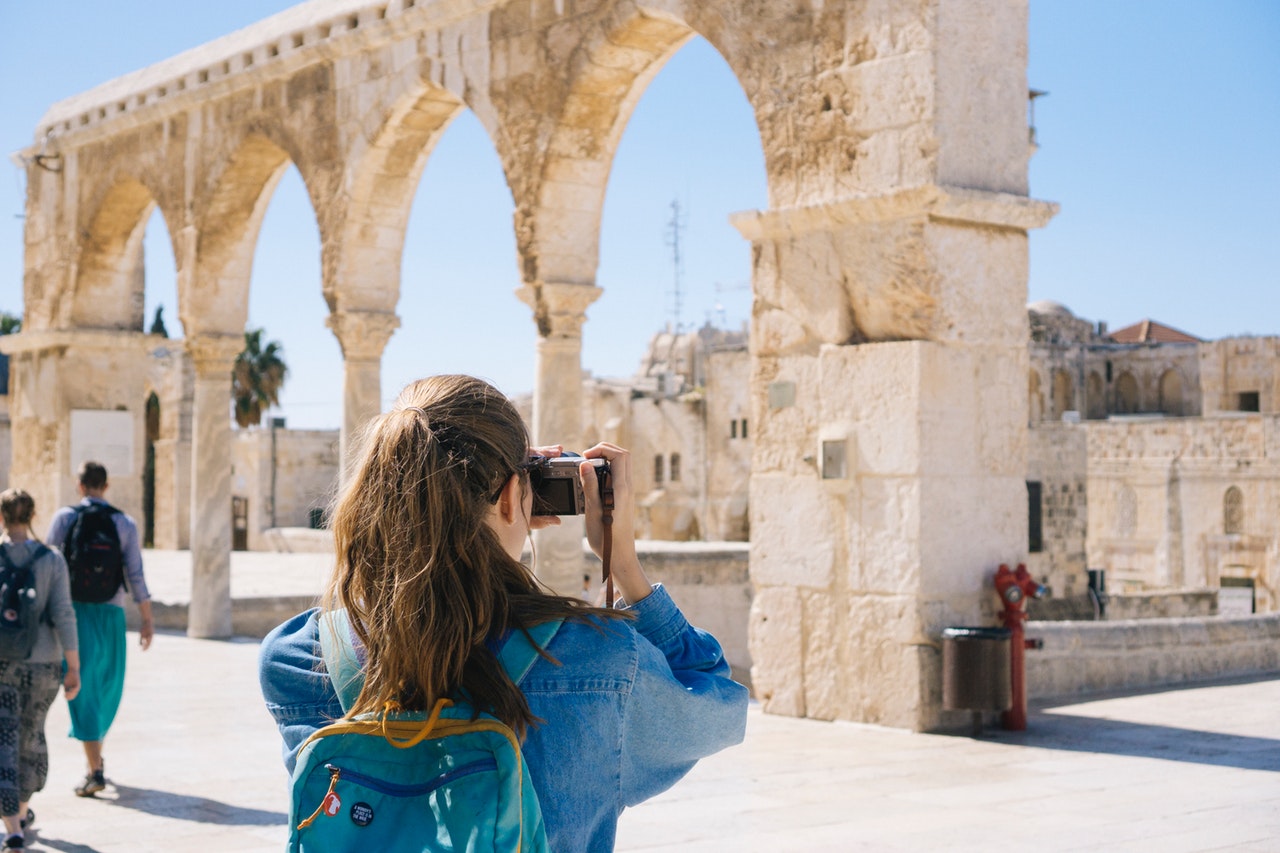5 Strategies to Reduce Travel Anxiety
If you have traveled enough, you have probably had at least one experience that didn’t go as planned. This might have resulted in a small inconvenience like a delayed flight or additional charge on your credit card, or it might have been a larger inconvenience like a lost passport, stolen wallet, or foodborne illness. The truth is that when you travel, things rarely go exactly as planned. Unexpected problems like these are headaches for any traveler but can be especially challenging for anxious travelers.
Millions of Americans struggle with anxiety disorders, making it the most common type of mental illness, impacting almost one in every three adults in America. Anxiety can show up in different ways for different people; some people experience a lot of physical symptoms like a racing heart, dizziness and shortness of breath, others will experience racing thoughts about things that might go wrong and others will describe feeling overwhelmed, stressed out, and irritable. The defining characteristics that these disorders share is that they interfere with a person’s life or their ability to function.
If you have struggled with an anxiety disorder, you can probably personally attest to the many ways that anxiety has interfered with your life and/or your ability to function. While anxiety can come up at any point during your normal routine, it is more likely to come up during times when you are faced with new, unexpected situations or challenges… like those you are bound to encounter when you travel. This can be especially difficult because when you are away from home, you also might be away from the people, places, things, and activities that you normally get comfort from. This can leave you with higher levels of anxiety than you normally have and fewer resources and skills to cope. If you are an anxious traveler, read on for tips and strategies on how to avoid letting anxiety drag you down:
Do your research
Some degree of research usually helps travelers make the most of their time away but may be even more essential for travelers with anxiety. Sometimes knowing more about where you are going and what to expect can add more certainty to your plan, reducing your anxiety. Luckily, the internet has paved in-roads to even the most obscure places in the world, and it is usually easy to find accurate information that can help you be more prepared for your trip. Checking in with reputable sources of information like the US Department of State’s Travel Advisories or official tourism sites can also sometimes help you avoid risks or headaches that are more common in the place you are visiting.
Plan Ahead
Traveling is most enjoyable when you are able to focus on the more enjoyable and relaxing aspects, instead of the logistical ones. Often, taking care of the logistics beforehand makes it more likely you will spend less of your trip making these arrangements. When possible, booking your flights, hotels, tours, and making at least a rough itinerary helps you make the most of your time, while also reducing stress and anxiety. Planning ahead also means making sure that you consider the possibility that you will become anxious while on your trip and preparing for what might help you if that happens. This includes things that might help you feel relaxed or calm like guided meditations, essential oils, and of course any prescribed medications.
Small acts of courage
Because anxiety is uncomfortable, many people are tempted to use avoidant strategies like drug or alcohol use, distracting themselves, or trying to avoid all of the things that make them anxious. Avoidance techniques can reduce anxiety in the short term, but in the long term can lead to more significant problems, like addiction, isolation, or lowered self-esteem. Over time, people can actually become less able to tolerate and cope with their anxiety because they are used to relying on avoidance or escape mechanisms. For these reasons, “shortcuts” that use avoidance usually aren’t worth taking, even though they might be tempting. In fact, a common way that anxiety disorders are treated is through “exposure therapy” which involves gradually exposing yourself to things that cause you anxiety. You can apply exposure techniques by finding ways to face smaller fears and in doing so, build up your courage. The more courage you build, the less control your anxiety will have over you.
Connect to the here/now
When your anxiety makes you feel like you are trapped in your head, the best strategy to use is often mindfulness, or intentionally drawing your attention to the here and now. Mindfulness describes a specific state of mind where you are fully present and engaged in whatever your current experience is, instead of being distracted or caught up in thoughts or feelings. You can practice mindfulness by intentionally shifting your full attention to something in the present: where you are, what you can see/hear/touch, sensations you notice in your body, or any other part of your current experience. The more attention you give to the here/now, the less attention you have to feed into your anxiety. Mindfulness is a proven way to reduce anxiety, and also helps you be less in your head and more in the moment- where you can fully experience and enjoy your trip, building memories that will last a lifetime.
Get Moving
Most people experience anxiety as a high-energy emotion and describe feeling restless or jittery when they are anxious. There is a physiological explanation for this increase in energy which is a part of the natural fight or flight response coded into each human. This response system cues the release of stress hormones and chemicals like cortisol and adrenaline during times when you are anxious, which provides a boost of energy meant to help increase your odds of being able to outrun or overpower an enemy. Unfortunately, this response system hasn’t modernized, and the fight or flight response is rarely one that is helpful during times when people are anxious. Still, the increase in energy can be expended through physical exercise and many people find that moving around is helpful in releasing nervous energy. When possible, take advantage of the energy your anxiety provides by using it to make the most out of your time.
While anxiety can provide an additional challenge for travel enthusiasts, it doesn’t have to put a damper on your wanderlust. If you are an anxious traveler, you may benefit more from researching and planning ahead of time because doing so might make it easier to really relax and enjoy your time away. Even if anxiety comes up during your trip, remember that it doesn’t have to ruin your itinerary. Using mindfulness will help you distance yourself from anxious thoughts and feelings, giving them less power over you. You can continue to take power away from your anxiety when you find small ways to face your fears and build up your courage. Finally, because anxiety is a high-energy emotion, you can sometimes use this energy to get out, get moving, and explore more.
Hailey is a Licensed Professional Counselor and Licensed Clinical Addiction Specialist with over a decade of experience helping people manage mental health and addiction issues. In addition to working with clients, she provides training and mentoring for newly licensed counselors and is a board-approved supervisor with the NCBLPC and NCSAPPB. Hailey has a Master’s degree in Mental Health Counseling from NC State University and has continued to work in North Carolina to further her efforts of improving the quality of services being provided in her community.


